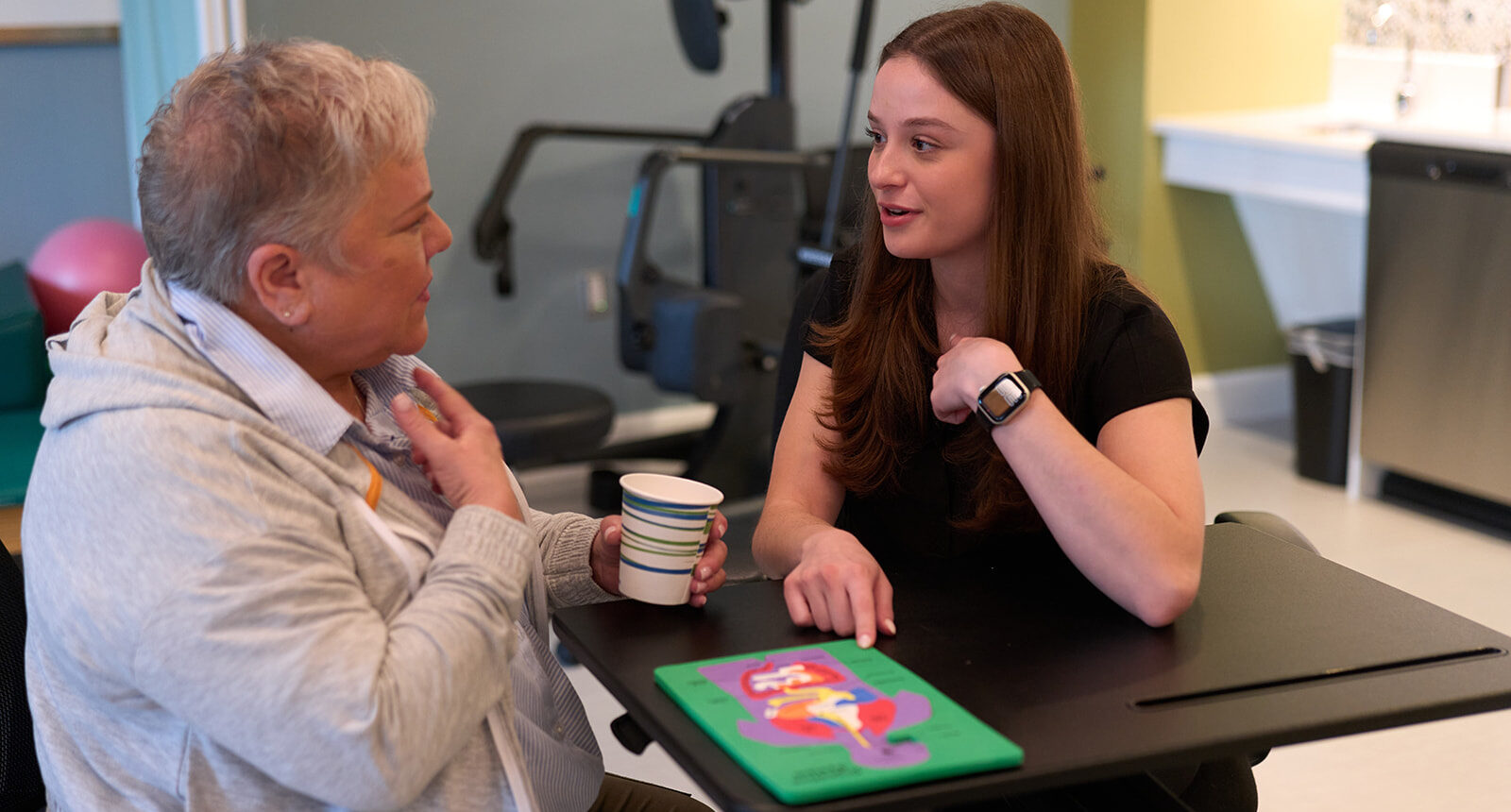How Occupational Therapy Helps People with Dementia

Occupational therapy is often associated with physical rehabilitation, but at its core, it’s about helping people fully engage in everyday life. Occupational therapists (OTs) focus on what individuals can do and how to enhance their independence, asking, “What matters to you?” rather than “What’s the matter with you?”
For seniors, occupational therapy focuses on improving daily living skills. Unlike physical therapists, OTs do not use manual therapy techniques. Instead, they help seniors gain or regain independence in performing essential tasks such as bathing, dressing, cooking, cleaning or walking. They also assist seniors in adapting to temporary or permanent disabilities, ensuring they maintain the highest possible level of autonomy.
Occupational Therapy for Dementia Care
Dementia leads to a progressive loss of cognitive function, making everyday activities increasingly difficult. The memory issues associated with dementia can disrupt daily routines, causing frustration and confusion. This is where an OT can help.
The role of an OT is to provide clients and their families with practical strategies to maintain cognitive function and independence for as long as possible. They work directly with individuals and caregivers to teach techniques and provide support, ensuring a higher quality of life.
How Occupational Therapy Supports Dementia Patients
Educating and Supporting Caregivers
OTs educate family members and caregivers on the functional impact of dementia and help establish structured routines to simplify caregiving. These routines can:
- Ensure proper nutrition and medication adherence
- Introduce personalized cueing and communication techniques
- Provide emotional support and coping strategies for caregivers
- Connect caregivers to resources and support networks
By promoting independence and reducing the caregiving burden, OTs help families create a more manageable and supportive environment for their loved ones.
Reducing Behavioral Challenges
As cognitive decline progresses, familiar tasks become difficult, leading to frustration, anxiety and emotional distress. When individuals struggle with activities they once performed with ease, it can result in outbursts or withdrawal.
Occupational therapy helps simplify tasks and create structured approaches that reduce stress and promote success, leading to a calmer, more confident individual.
Enhancing Function and Safety
While occupational therapy cannot cure dementia, it can significantly improve function through adaptive strategies such as:
- Breaking tasks into smaller, manageable steps
- Implementing assistive devices like transfer benches for safer bathing
- Assessing and modifying home environments to enhance safety and ease of movement
Studies show that OT interventions increase home safety and enable individuals with dementia to function more independently, reducing the need for extensive caregiving.
Promoting Relationships and Social Participation
Dementia can make communication difficult, straining relationships with loved ones. OTs assess behavioral changes and social interactions, identifying triggers and recommending techniques to improve connections with family and friends. By addressing these challenges, OTs help individuals maintain meaningful relationships and social engagement, which is essential for emotional well-being.
Personalized Support at Ridge Crest at Meadow Ridge
At Ridge Crest at Meadow Ridge, our premier Sub-Acute Rehabilitation, Skilled Nursing and Respite Care neighborhood, residents receive comprehensive occupational therapy. With expert care and personalized rehabilitation services, we integrate healthcare, therapy and daily life activities to promote overall well-being and independence.
Personalized Care and Comprehensive Support
Care services are tailored to meet each resident’s unique needs, including:
- High Staff-to-Patient Ratio
- Personalized Care Plans
- Coordination of Care and Therapy
- Medication Administration
- 24-Hour Emergency Response
- On-Campus Physician Available
These services are available to both residents and non-residents of Meadow Ridge.